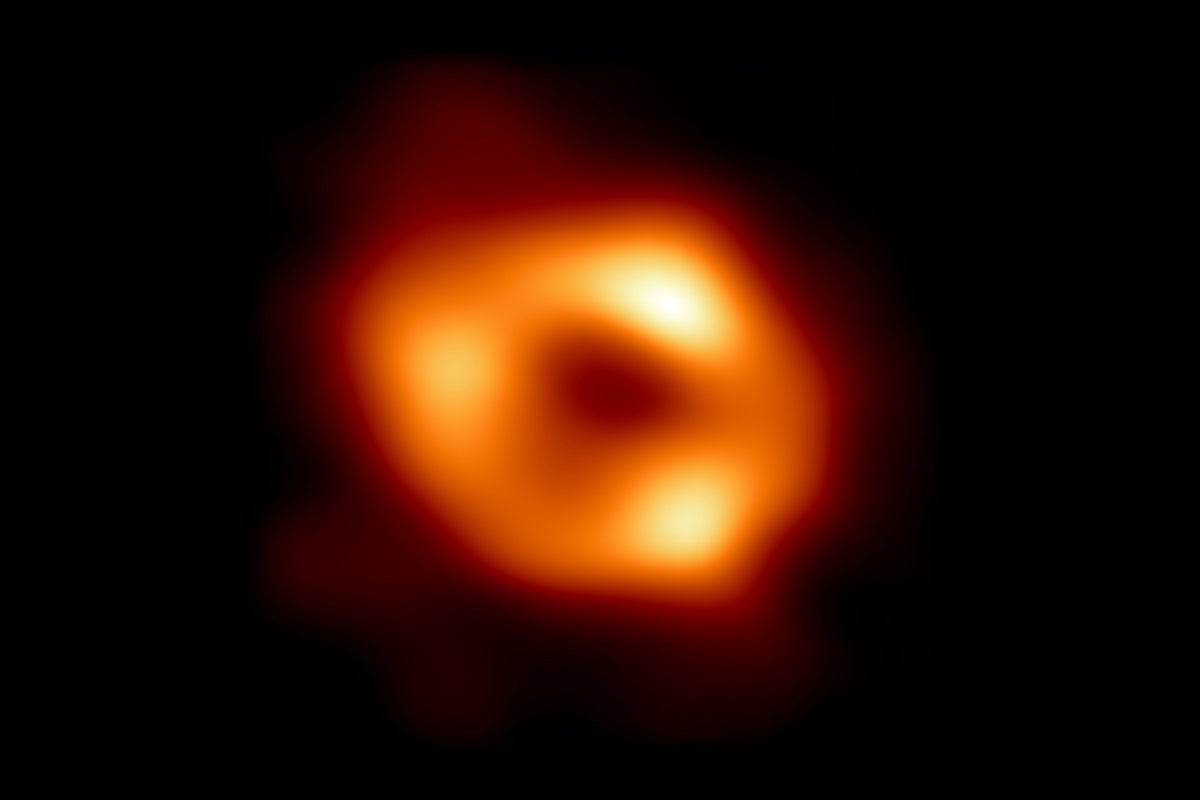The famous first picture of the supermassive black hole at the heart of our galaxy might not be accurate, a new study has claimed.
The picture – initially published in 2022, after years of intense work by an international team called the Event Horizon Telescope (EHT) collaboration – was a stunning insight into the swirling mass that sits at the heart of the Milky Way galaxy.
The image famously showed a doughnut-shaped ring with a round orange shape and a dark hole in the middle. The dark region at the centre is the black hole itself, and the orange shows the gas that has been heated to intense temperatures by the powerful gravitational forces around it.

But a new study suggests that shape is wrong. In fact, the disk of accreted material around the black hole may be longer, according to the new research led by the National Astronomical Observatory of Japan.
The study flies in the face of vast amounts of research both to gather and then verify the data used to create the original image.
Researchers say however that errors in the process might have led the data to be wrongly analysed. They made the claim after looking at the data, originally gathered in 2017, that was used to create the image.
“Our image is slightly elongated in the east-west direction, and the eastern half is brighter than the western half,” said Miyoshi Makoto, from the NAOJ.
“We think this appearance means the accretion disk surrounding the black hole is rotating at about 60 per cent of the speed of light.
“Why, then, did the ring-like image emerge? Well, no telescope can capture an astronomical image perfectly.
“We hypothesise that the ring image resulted from errors during EHT’s imaging analysis and that part of it was an artefact, rather than the actual astronomical structure.”
A paper describing the claims, ‘An independent hybrid imaging of Sgr A* from the data in EHT 2017 observations’, is published in the journal Monthly Notices of the Royal Astronomical Society.

